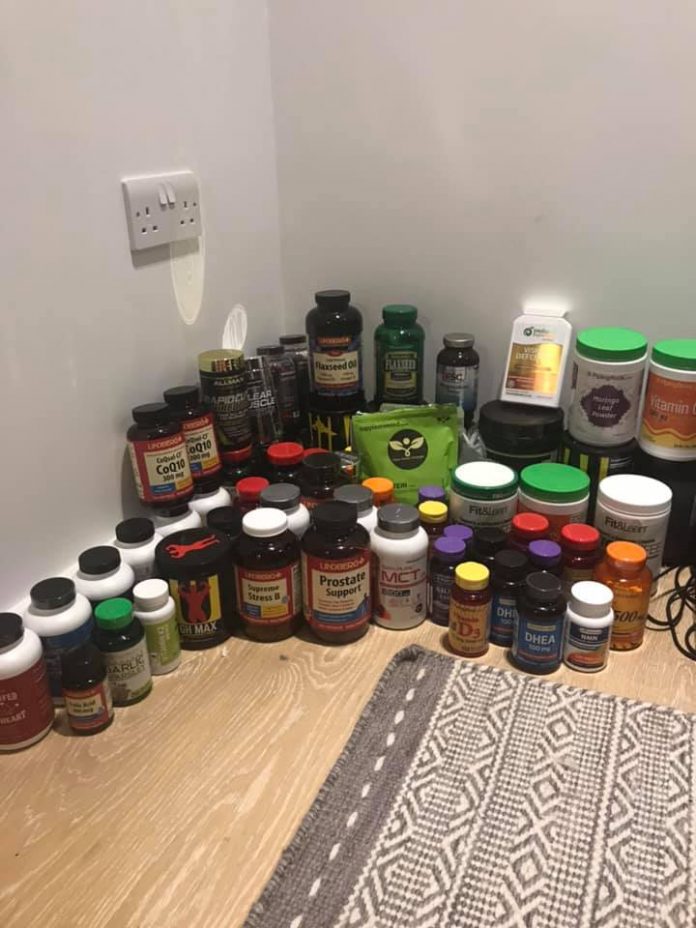Ahhh vitamins and supplements… if there were ever a topic that leaves readers more divided on the efficacy or lack thereof, it’s this topic. Personally I lean towards the side that believes vitamins and supplements do play an important role in immediate and long-term health and performance. Let’s dive in.
So, who takes vitamins anyway? It’s estimated that more than half of Americans are currently taking at least one vitamin supplement. Everyone’s needs are different, so the “what” in regard to what people are taking, the dosage, and the frequency may differ by individual, but I think we can all agree on the significance of the number of users. [1]
Regarding dose, you can always refer to the ingredient label on your vitamin bottle (and should really be doing this anyway, to make sure there are no strange additives or dilutions, and that you are purchasing a pure, high quality product) and check the RDA (recommended daily allowance), which will usually be expressed in mg or mcg, and sometimes in iU measurements. It’s always recommended to not exceed the RDA, but in my case, depending on the supplement, I will go over at times because I know my body is not absorbing 100% of the supplement, and that some of the benefit is lost in the digestive process. Be careful with this one, though, especially if you are just starting out. Too much of certain supplements can lead to things like hair loss (vitamin A over-supplementation), digestive tract malfunction (iron over-supplementation), and even death (potassium over-supplementation). First I usually google the “consequences of overdose” for any supplement I take.
So, what are the basic vitamins we should all be getting (either through food or through supplementation) and what are the benefits?
- Vitamin A – helps fight infection, supports healthy vision, supports heart/lung/kidney health, strengthens bones & teeth
- Vitamin B – there are 8 B-vitamins and most health practitioners are of the opinion that the average American is lacking in at least a few of them. It’s best to take a B-complex vitamin to address the entire spectrum. B-vitamins help with maintenance of cognition / memory, metabolism, improving cholesterol, reducing risk of cardiovascular disease, and maintaining proper nervous system functionality
- Vitamin C – reduces risk of the common cold by boosting the immune system, maintains healthy skin and tissues as well as strengthens bones and teeth
- Vitamin D – while this is best absorbed through sun exposure, the main thing to note is that recently Vitamin D has received increasing attention by the scientific community, who hold the opinion that high levels in the blood over a sustained period of years may play a significant role in prevention of future ailments. Vitamin D supports immune function, maintains the nervous system, and regulates blood levels of calcium and phosphorous
- Vitamin E – helps protect cells from free radicals and other toxins, maintains muscle function, reduces risk of cancer, heart disease and Alzheimer’s
- Vitamin K – Be careful with this one, as there are 2 versions (K1 & K2). Most of us get enough K1 with our normal diet, but it’s K2 that most people who consume a Western diet usually lack (whereas the Japanese get more than enough with their diet). It supports wound healing, helps create strong bones, and helps prevent heart disease. You should definitely be supplementing Vitamin K2 especially if you are already supplementing Vitamin D3, as they counteract each other.
- Calcium – improves muscle function, regulates blood pressure and hormone secretion, helps maintain bones and teeth as well as reduces risk of osteoporosis.
- Iron – aids in concentration, supports immune function, and carries oxygen in the blood
- Zinc – reduces risk of cancer, improves memory and immune function
Many veteran vitamin takers would denounce the efficacy of the tradition multi-vitamin and may even have preferred brands they go to for each of the individual supplements on the list above, but the important thing to consider is the dose of each vitamin you are getting, and how that weighs against the cost (and the number of pills in the bottle). You should definitely Google “top brands for vitamins and supplements”, or read Amazon reviews, or even pop into your local Vitamin Shop and speak to someone who is knowledgeable about the subject. You could also ask your doctor to recommend a brand. I have tried at least 3-4 different brands for all supplements I take over the years and have finally settled on the brands I think are best for me. For those of you just starting out, begin with a quality multi-vitamin and go from there. One way to determine what you should be supplementing (or getting more of through diet), is a blood test. The basic vitamin/mineral panel will tell your doctor about any deficiencies you are experiencing. You should try to get this done at least once a year, as values can change rapidly depending on lifestyle, diet and even stress levels (stress depletes entire bodily storage of certain vitamins and minerals almost instantly if it’s bad enough). Also remember certain medications may have adverse interactions with your vitamin/supplement regimen, so exercise caution and do your research if you are taking any prescription drugs before you supplement any vitamins.
There are many additional types of vitamins (thousands actually) that I didn’t include on the list such as certain fish oils, flaxseed, CoQ10, any vitamin which is a Nootropic, amino acids, and the list goes on. Do your research and know what you need to optimize yourself and achieve whatever your personal goals are (weight loss, immune boosting, muscle gain, general wellness, etc).
Another thing to note is the difference between a vitamin and a mineral. Whereas all vitamins are needed by the body, only a select number of minerals are required for proper health. These include calcium, chromium, copper, iodine, iron, magnesium, manganese, phosphorus, potassium, sulfur, sodium, and zinc. [2]
Continuing, how should you be consuming your vitamins? There are always multiple forms available including pill, tablet, powder, liquid, liposomal, and even some transdermal and injectable versions of the vitamin. It would take an entirely separate article to explain the significance between these different delivery methods, so we won’t get into that in this post, but just know you should google “best form of Vitamin XX that allows for maximum absorption by the body”, or a phrase similar to that, and do some reading to discover what absorption method works best for what vitamin. That’s not to say that you need to end up choosing that delivery method, as things like cost and availability become a factor. You will never go wrong with an ingestible pill, however the point is sometimes there may be a better way. I, for example, find transdermal application of Vitamin B and Iodine to be the best for my absorption (I put them on my skin in liquid or gel form and the skin absorbs only what the body needs, also avoiding breakdown in the liver). I’m also a fan of intravenous vitamin drips as you are putting the vitamins directly into the bloodstream, again avoiding dillutance in the digestive tract.
This topic deserves many many more specific articles in the future but for now, I hope this will get you started especially if you are new to vitamin supplementation. Always remember, though, that there is no magic bullet that will ever be good enough to replace the benefits of a healthy diet and lifestyle. Keep that in mind, do your research, and take your vitamins!
SOURCES
[1] https://my.clevelandclinic.org/health/drugs/15847-vitamins-the-basics [2] https://www.pharmacytimes.com/publications/otc/2015/OTCGuide-2015/Vitamins-and-Minerals-Explained










